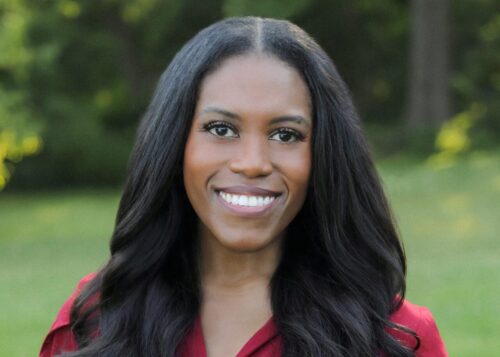The "Colorado Option" Raises Concerns of LGBTQ Provider Privacy in Path to Health Equity
July 26, 2022

Drs Producoes, Getty Images
Allowing patients to search for providers by demographic information is a start but not a quick fix to creating culturally responsive healthcare
Earlier this year, the U.S. Department of Health and Human Services (HHS) approved the creation of the “Colorado Option,” a first-in the nation health coverage plan launching in Colorado. The goal of the plan is to increase health coverage enrollment across the state while lowering healthcare costs, starting in 2023. The Colorado Option is also designed to advance health equity by focusing on reducing health disparities.
One of the ways the Colorado Option aims to advance health equity is by requiring insurance plans to have a network of providers that is “culturally responsive”—reflects the diversity of its enrollees in terms of ethnicity, race, gender identity, and sexual orientation. By increasing provider diversity to better mirror the plan’s population, participants can choose from a list of providers who share their background. Recent studies have shown a correlation between similar provider and patient demographics and better health outcomes.
Originally, the plan in Colorado was to include providers’ complete demographic data in provider directories to enable prospective patients to make choices based on this information. However, physician groups raised concerns about privacy and worried that this information could be used to target LGBTQ providers by hate groups or intolerant individuals in certain areas of the state. Instead, plans will collect demographic data from providers, who can refuse to answer, and compile it in aggregate.
The concerns raised over provider privacy versus patient choice reflect a greater dilemma facing Colorado’s healthcare system. For many LGBTQ patients and others in traditionally marginalized populations, being able to choose a provider who mirrors their race, gender identity, or sexual orientation makes all the difference in how they experience the healthcare system and whether they receive care at all.
To learn more about the pros and cons of disclosing clinician demographics with patients, HealthCity spoke with Carl Streed Jr., MD, MPH, FACP, a primary care physician at Boston Medical Center (BMC) and the research lead for the Center for Transgender Medicine & Surgery at BMC.
HealthCity: What is your take on sharing clinician demographics with patients?
Carl Streed: The idea of having clinician demographics is not a new one. Patients often shop around and find a clinician who is a good fit with them. Sometimes that fit is based on certain demographic characteristics, whether because of a shared upbringing or based on an assumption of shared experiences. It’s helpful for patients to have some of this demographic information upfront, at least for patients to consider.
For marginalized groups, such as LGBTQ folks, having a clinician who shares that identity with you can really make or break the clinician-patient experience. Furthermore, it can also provide a big boost in terms of instilling some sense of trust. A lot of it is still based on assumption, but at least it’s a start for patients to work with.
As an openly gay doctor myself, I’m listed on a number of directories that are not necessarily related to a medical institution, so that information is out there and people do find me that way.
While I support patients having access to more information that helps them make choices about their care, I see the double-edged sword. There’s been plenty of research over the years showing that some LGBTQ clinicians have suffered when they come out. Sometimes, they might not get referrals from colleagues if they’re out, or patients may choose to switch clinicians when the patient finds out that their clinician is LGBTQ. However, I believe providing this information upfront gets some of that out of the way with patients.
At the end of the day, I don’t think that sharing this information should be mandatory. Providers should have control over their personal information.
HC: In your experience, what is the sense among fellow providers about making their demographic information public?
CS: We’ve started collecting this information from members of the American Medical Association (AMA) as well as from some state societies. I’ve helped lead Massachusetts in updating its demographic data for its membership. So far, I have not seen a whole lot of pushback.
HC: Do you see a difference in feedback between disclosing sexual orientation or gender identity and disclosing race or ethnicity?
CS: I think there is a difference, but there is more similarity. In all cases, you’re really trying to find identity components that you share with your clinician. Particularly for LGBTQ folks, if you’re meeting with a gay doctor or trans doctor, you’re likely not going to face discrimination based on your sexual identity or your gender identity. And that’s really important, because that’s a major barrier for LGBTQ folks, and trouble with accessing care is the experience of discrimination in healthcare. The same can be said around race and ethnicity. Having somebody who shares your racial or ethnic background reduces the concern for and potential experience of discrimination in healthcare.
HC: Some experts have suggested that being trained in LGBTQ healthcare is more important than a provider being in that community themself. How would you respond to that?
CS: Being part of that community is a good entree to that experience and is a good starting point. But my experience as a gay man doesn’t tell me anything about the experience of a trans gay man or a bisexual individual. It doesn’t automatically prepare me for that. I’ve had to go through additional training to really try and understand the unique needs of each of these individual communities and populations. I’ve also had bad experiences with gay doctors who’ve made assumptions about certain situations. So, finding somebody who shares your identity doesn’t mean everything will be perfect.
I do think that training is more important, honestly. But training right now is only a recommendation. It is not a requirement that all clinicians learn about LGBTQ health in a competent and compassionate way, and it should be.
HC: Do you think it would be helpful for healthcare institutions to somehow flag providers who have had LGBTQ healthcare training?
CS: Yes, some institutions have started to create an LGBTQ health competence flag for clinicians who have taken any kind of additional training on the topic, for example two hours of Continuing Medical Education (CME). It’s not as in-depth as I think any of us would like, but it’s a start.
HC: Overall, do you think legislation like the Colorado Option is beneficial?
CS: Yes, I think it better serves patients. But it does not replace the need for everybody getting trained on LGBTQ health.


